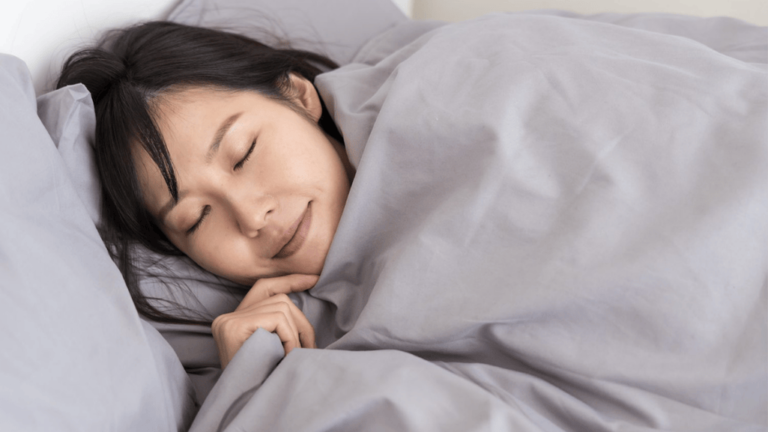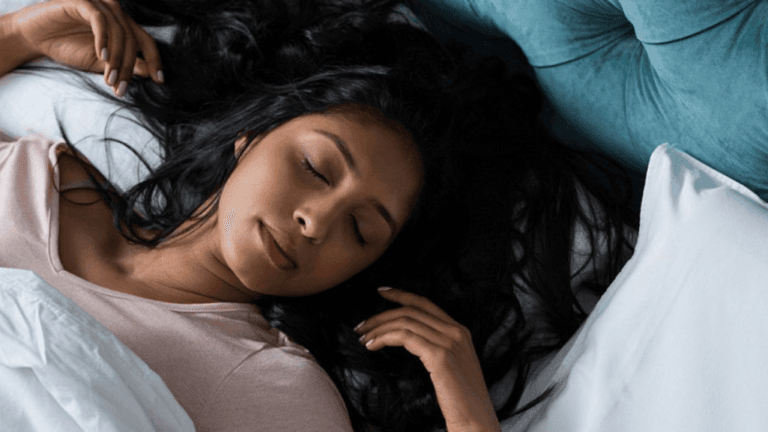Sleep health is vital for our overall health. It affects our mood and how well we work. This article will give you expert advice to improve your sleep.
Knowing your circadian rhythm helps improve sleep health. This internal clock tells you when you’re tired and awake. By following your natural rhythm, you can sleep better.
Sleep disorders can ruin your rest and daily life. Issues like insomnia, sleep apnea, and restless leg syndrome are common. Recognizing these disorders is the first step to fixing them and better sleep.
Key Takeaways
- Maintain a consistent sleep schedule, even on weekends
- Aim for at least seven hours of sleep per night
- Keep your bedroom temperature between 65-68°F (18-20°C)
- Limit screen time before bed to improve sleep quality
- Regular exercise can promote better sleep
- Avoid caffeine and alcohol close to bedtime
- Seek medical advice if sleep issues persist
Understanding the Importance of Sleep Health
Sleep health is key to our overall well-being. It affects our physical and mental performance. Not getting enough sleep can lead to health problems, like poor thinking skills, mood changes, and a weak immune system.
Our bodies have natural sleep-wake cycles called circadian rhythms. These cycles are affected by light and tell us when we’re awake or sleepy. Knowing and following these rhythms can help us sleep better and stay healthy.
Sleep happens in different stages, each with its own purpose. These stages include light sleep, deep sleep, and REM sleep. Our bodies fix tissues, make memories stronger, and balance hormones during these stages.
| Age Group | Recommended Sleep Duration |
|---|---|
| School-age children | 9-12 hours |
| Teenagers | 8-10 hours |
| Adults | 7-8 hours |
| Older adults | 7-8 hours |
It’s important to have good sleep habits for overall sleep health. This means going to bed and waking up at the same time every day, having a calming bedtime routine, and making your bedroom sleep-friendly. By doing these things, you can sleep better and feel better overall.
“Sleep is the golden chain that ties health and our bodies together.” – Thomas Dekker
Identifying Common Sleep Disorders
Sleep disorders affect millions of Americans, changing their daily lives and health. It’s important to understand these conditions for better sleep health. Let’s look at some common sleep disorders and their effects.
Insomnia
Insomnia is the most common sleep disorder, affecting about one-third of adults. It makes it hard to fall asleep or stay asleep. Around 4-22% of adults have symptoms bad enough to be called insomnia disorder.
Age, social class, and mental health can make insomnia more likely.
Sleep Apnea
Sleep apnea means you stop breathing for short times while you sleep. It affects at least 30 million Americans, but many don’t know they have it. This disorder can make you tired during the day and increase health risks.
Snoring can be a sign of sleep apnea, but not all snorers have it.
Restless Leg Syndrome
Restless leg syndrome (RLS) makes you want to move your legs, which can disrupt sleep. Up to 15% of people have RLS, but only a few have bad symptoms. This condition can make falling or staying asleep hard, leading to tiredness during the day.
Other sleep disorders include narcolepsy, affecting 1 in 2,000 Americans, and parasomnias, found in up to 20% of kids. Recognizing these disorders is key to better sleep health. If you think you have a sleep disorder, see a healthcare professional.
They can give you the right diagnosis and treatment options. This might include changing your lifestyle or making your sleep area more comfortable.
| Sleep Disorder | Prevalence | Key Symptoms |
|---|---|---|
| Insomnia | 33% of adults | Difficulty falling or staying asleep |
| Sleep Apnea | 30+ million Americans | Breathing pauses during sleep, snoring |
| Restless Leg Syndrome | Up to 15% of people | Urge to move legs, especially at night |
| Narcolepsy | 1 in 2,000 people | Sudden daytime sleep attacks |
Creating a Sleep-Friendly Environment

Your sleep environment is key to getting good rest. A well-designed bedroom can make your sleep better and boost your health.
Optimizing Your Bedroom for Sleep
The best bedroom temperature for sleep is about 65°F (18.3°C). Try different temperatures between 60-67°F to see what works best for you. Use blackout curtains to keep your room dark, which helps make more melatonin.
Choose calming colors like blue, yellow, or green for your walls. These colors help you relax.
Investing in a Comfortable Mattress and Pillow
A good mattress is key for sleep. A new mattress can make your sleep better and lessen back pain. Pick a pillow that stops headaches and neck pain.
Wash your sheets every two weeks to keep your bed clean. This helps you sleep better.
Managing Light and Noise Exposure
Keep your bedroom quiet to help you sleep deeper. Use a white noise machine to block out disturbing sounds. Try to avoid bright lights in the evening, as they can wake you up more.
| Sleep Environment Factor | Recommendation |
|---|---|
| Temperature | 65°F (18.3°C) |
| Light | Use blackout curtains |
| Noise | White noise machine |
| Mattress | Replace regularly |
| Sheets | Wash every two weeks |
By improving these areas, you can make your bedroom perfect for sleep. This leads to better rest and health.
Establishing Healthy Sleep Habits

Good sleep hygiene is the key to restful nights. It’s important to have a consistent sleep schedule. Try to get 7-8 hours of sleep each night, at the same times every day.
A calming bedtime routine can make a big difference in your sleep. Begin 30-60 minutes before bed with activities like reading or gentle stretching. This tells your body it’s time to relax.
Adding relaxation techniques to your routine can help. Deep breathing exercises or meditation can calm your mind. These activities reduce stress and get your body ready for sleep.
Your bedroom’s environment affects your sleep quality. Keep the room cool, quiet, and dark. A comfy mattress and pillows are also key for good sleep.
| Sleep Habit | Recommendation |
|---|---|
| Sleep Duration | 7-8 hours nightly |
| Bedtime Routine | Start 30-60 minutes before sleep |
| Electronic Devices | Turn off 30 minutes before bed |
| Bedroom Temperature | 65-68°F (18-20°C) |
| Daytime Naps | Limit to 20 minutes in early afternoon |
Being consistent with your sleep habits is crucial. Stick to your schedule, even on weekends, to keep your body’s clock in check. By following these sleep hygiene tips, you’ll enjoy better sleep and more energy during the day.
The Role of Diet and Exercise in Sleep Health
Your diet and exercise habits are key to good sleep. Making smart choices can make a big difference in how well you rest and feel.
Foods That Promote Better Sleep
Some foods can help you sleep better. Foods like cherries, kiwi fruit, fish, poultry, milk, cheese, eggs, and pumpkin seeds are good for sleep. They have nutrients that help make melatonin, a hormone that controls your sleep cycle.
The Impact of Exercise on Sleep Quality
Exercise and sleep are connected. Doing at least 30 minutes of moderate exercise can make your sleep better that night. Exercise boosts slow wave sleep, which is key for healing your brain and body. After exercise, your body temperature drops, which can help you feel sleepy.
Avoiding Caffeine and Alcohol Before Bedtime
Drinking caffeine or alcohol a few hours before bed can hurt your sleep. Caffeine messes with your sleep patterns, especially if you have it close to bedtime. Alcohol might make you drowsy at first, but it can make your sleep broken later on.
| Factor | Impact on Sleep | Recommendation |
|---|---|---|
| Diet | Affects sleep quality and duration | Consume balanced meals with adequate carbs, fat, and protein |
| Exercise | Improves sleep quality | 30 minutes of moderate aerobic exercise daily |
| Caffeine | Disrupts sleep patterns | Avoid 6 hours before bedtime |
| Alcohol | Leads to fragmented sleep | Limit consumption, especially near bedtime |
Good sleep is linked to managing your weight and feeling well overall. By choosing wisely about what you eat and exercise, you can sleep better and wake up feeling great.
Utilizing Sleep Tracking and Technology
Sleep trackers and apps have changed how we check and better our sleep health. They give us deep insights into our sleep patterns at night. This helps us make smart choices about our sleep habits.
Benefits of Sleep Tracking Devices
Wearable sleep trackers use accelerometers to track movement. Some top models also check heart rate and oxygen levels. They give us info on how long we sleep, the stages of sleep, and our sleep patterns.
Studies show that sleep trackers can pretty well guess how long we sleep. But, they might not always get the sleep stages right. A 2018 study found that the FitBit Charge 2 might overestimate sleep time. But, it got the time we wake up after sleeping right.
Apps and Tools for Improving Sleep Health
Sleep apps are getting more popular, with about 25% of adults using them. These apps have cool features like white noise, guided meditation, and ways to relax for better sleep. Blue light blocking glasses can also cut down on the sleep problems caused by screens before bed.
| Device Type | Features | Accuracy |
|---|---|---|
| Wearable Trackers | Movement, heart rate, oxygen levels | Good for sleep duration |
| Nearable Trackers | Sound, pressure, radar sensors | Varies by device |
| Smart Mattresses | Pressure sensors, temperature control | Depends on model |
| Sleep Apps | Sleep sounds, meditation, alarms | Limited research available |
Even with these tech tools, it’s key to talk to a health expert if you think you have a sleep issue. Sleep trackers give us general trends but not full medical checks.
Conclusion
Improving sleep health is key to better overall well-being. About one in three American adults don’t get enough sleep. It’s important to focus on sleep habits.
Experts say adults should get at least seven hours of good sleep each night. This helps keep you healthy.
This article has shown ways to improve sleep quality. Making your bedroom sleep-friendly, sticking to a bedtime routine, and watching your diet and exercise are important. Avoiding caffeine six hours before bed helps, and don’t work out too close to bedtime.
Good sleep habits do more than just make you feel awake. They boost your immune system, help you stay at a healthy weight, and lower the risk of chronic diseases. By following the tips given here, you can get better sleep and enjoy better health.
Putting sleep first is good for your health. It means making your bedroom comfy, tracking your sleep, and changing your daily habits. Every change helps you sleep better. Start improving your sleep habits now and see how it changes your life.








